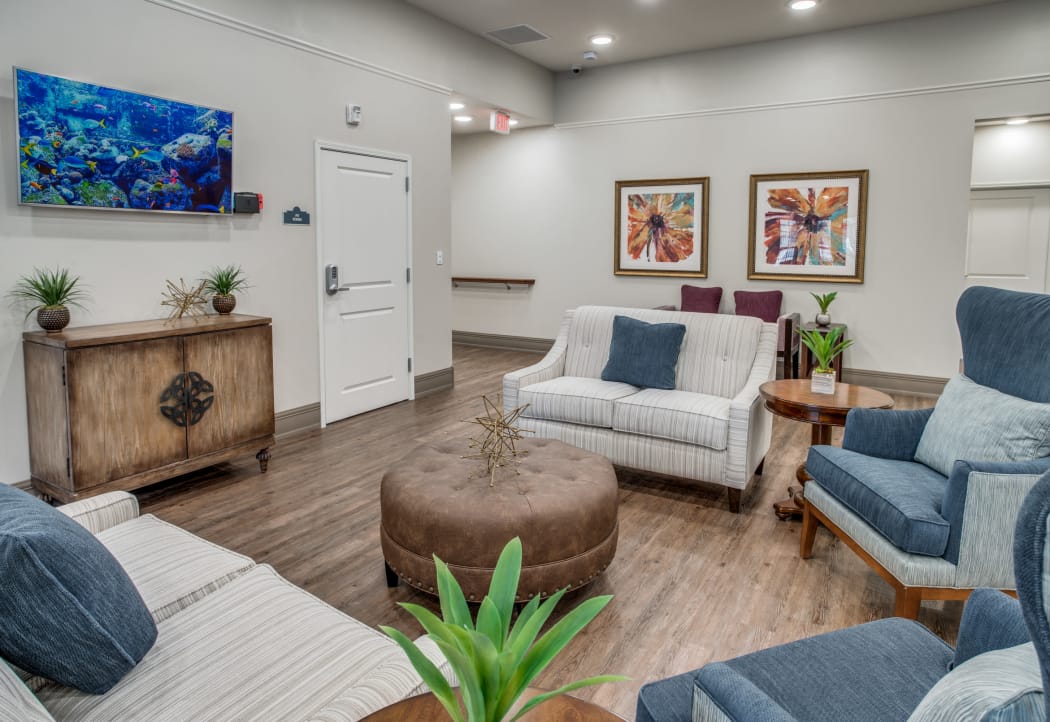Charlotte Memory Care: Quality Senior Citizen Coping With Memory Care Experience
Charlotte Memory Care: Quality Senior Citizen Coping With Memory Care Experience
Blog Article
What to Anticipate in Memory Treatment: An In-depth Guide to In-Home Provider
As family members come to terms with the difficulties of caring for a person with memory loss, the world of in-home solutions offers a lifeline of assistance and specialized treatment. Comprehending what to expect in memory care is vital for ensuring the well-being of both the specific with memory disability and their caregivers.
Daily Routines and activities
Taking part in structured day-to-day activities and routines is an essential component of providing top quality look after individuals in memory care facilities. These tasks are diligently made to deal with the certain requirements of homeowners with cognitive impairments, such as Alzheimer's illness or dementia. Daily regimens play an important role in maintaining a feeling of knowledge, safety and security, and objective for people in memory treatment.

In addition, day-to-day routines assist people in memory treatment facilities to feel more focused and much less distressed. Uniformity in routines and activities can decrease complication and frustration, offering a feeling of stability and comfort. Caregivers and team member play an important function in promoting these activities, making sure that each resident obtains customized and caring treatment customized to their one-of-a-kind choices and abilities.
Specialized Care Services
Within memory care facilities, specialized care solutions are necessary to address the special requirements and difficulties encountered by people with cognitive disabilities such as Alzheimer's illness or dementia. These services are designed to give customized assistance that provides to the certain requirements of locals handling memory loss. Specialized treatment solutions in memory care facilities usually consist of individualized treatment plans, assistance with activities of day-to-day living, medicine management, and behavior modifications aimed at improving lifestyle and lessening distress.
Additionally, memory treatment facilities typically offer structured programs and tasks particularly developed to stimulate cognitive feature and advertise social interaction amongst locals. These tasks might include memory-enhancing exercises, sensory excitement therapies, and memory therapy sessions. In addition, specialized treatment services typically include normal tracking of homeowners' wellness and well-being by experienced team member who are equipped to take care of the special challenges linked with cognitive decrease.
Precaution and Atmosphere
Applying stringent safety and security steps and developing a safe and secure setting are extremely important concerns in memory care centers to ensure the well-being and protection of locals with cognitive disabilities. Security in memory treatment begins with secure structure style, including locked doors and kept track of access to stop citizens from roaming outdoors not being watched. Furthermore, facilities often have alarm and security video cameras to check locals and respond swiftly to any kind of emergency situations. Inside, the setting is thoroughly intended to reduce dangers, with hand rails, get bars, and non-slip floor covering to stop falls. Furniture is set up to promote very easy navigating, and potentially dangerous items are secured away or removed. Employee obtain specialized training in handling emergency situations, de-escalating tough actions, and making certain the safety and security of homeowners in all times. Regular safety assessments are performed to recognize and address any possible threats immediately. By focusing on precaution and maintaining a safe and secure setting, memory care centers purpose to supply a safety and comforting setup for individuals with cognitive impairments.
Communication and Engagement Strategies
With an emphasis on improving and promoting purposeful communications lifestyle, effective interaction strategies play a crucial role in sustaining people in memory care centers. Interaction in memory care includes understanding the one-of-a-kind needs of citizens who might have cognitive impairments like dementia. Basic language, clear instructions, and non-verbal hints such as motions and facial expressions are essential devices for reliable communication. Caregivers ought to approach residents with persistence, regard, and compassion, developing a helpful setting where individuals feel understood and valued.
Interaction approaches are go to the website additionally essential in memory treatment, aiding locals remain active, boosted, and attached to their surroundings. Charlotte Memory Care. By prioritizing individualized interaction and engagement techniques, memory treatment centers can boost the general well-being and top quality of life for their citizens.
Caretaker Assistance and Resources
Given the important function caretakers play in executing effective communication and engagement methods for citizens in memory care facilities, providing sufficient assistance and resources is necessary check here to make certain the well-being of both the caregivers and the individuals under their care. Caregivers in memory care setups frequently deal with special obstacles that can impact their physical and psychological health. To deal with these difficulties, different support group and sources are readily available to aid caretakers in providing the most effective possible care.
One necessary type of support is caregiver education and learning and training programs. These programs furnish caregivers with the needed skills and knowledge to properly take care of the signs and symptoms and actions connected with memory loss. In addition, support groups provide caregivers the opportunity to attach with others that are experiencing comparable challenges, giving a sense of area and understanding.

Verdict

Involving in structured daily activities and regimens is a fundamental component of giving top quality care for people in memory treatment facilities.Within memory care centers, specialized care services are crucial to resolve the distinct requirements and challenges faced by people with cognitive disabilities such as Alzheimer's condition or mental deterioration. Specialized care solutions in memory treatment centers frequently consist of customized care plans, help with activities of day-to-day living, medication administration, and behavioral treatments aimed at improving quality of life and reducing distress.
Offered the essential duty caretakers play in carrying out efficient interaction and interaction methods for locals in memory care centers, providing sufficient support and resources is crucial to make certain the wellness of both the caregivers and the people under their treatment. Daily activities, specialized care services, security measures, communication approaches, and caregiver support are crucial components of in-home memory treatment.
Report this page